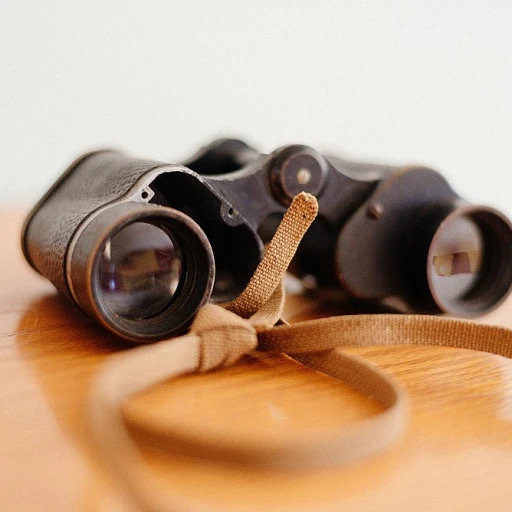
Understanding the role of coaching in talent acquisition
Why Coaching Matters in Talent Acquisition
In today’s competitive landscape, organizations are realizing that hiring for technical skills alone is not enough. The ability to coach and develop team members is increasingly seen as a crucial coaching skill for driving team performance and long term success. When you approach talent acquisition with a focus on coaching, you’re not just filling a role—you’re investing in the continuous improvement and personal growth of your team.
The Impact of Coaching on Team Performance
Effective coaching helps team members feel supported, understand their roles, and progress towards achievable goals. A strong coaching plan can provide structure for setting clear expectations and maintaining open communication. This approach helps individuals adapt coaching techniques to different personalities and situations, which is vital for team development and problem solving.
- Career coaching enables employees to see a path for advancement, boosting engagement and retention.
- Time coaching helps teams prioritize tasks and manage workloads efficiently.
- Coaching philosophy and style influence how a coach interacts with team members, impacting overall team culture.
Coaching in the Interview Process
Integrating coaching into your interview strategy means asking interview questions that reveal a candidate’s approach to development, problem solving, and supporting others. The right questions help you understand how a candidate would provide feedback, set goals, and foster continuous improvement. This is not just about finding someone who can lead, but someone who can help every player on the team reach their potential.
For more on how to structure your interview process for maximum impact, check out this guide on crafting the perfect interview confirmation email.
Key competencies to assess through coaching interview questions
Identifying Core Coaching Competencies
When evaluating candidates for a coaching role, it is crucial to focus on the specific competencies that drive team performance and individual growth. Effective coaching interview questions should help you understand how a candidate approaches setting achievable goals, adapts their coaching style, and maintains open communication with team members. These competencies are not just about technical knowledge, but also about the ability to foster continuous improvement and personal development within the team.
- Problem Solving Skills: Assess how the candidate helps team members overcome challenges and supports them in finding solutions. Listen for examples where they provided guidance without taking over, encouraging players to think independently.
- Approach to Setting Clear and Achievable Goals: Explore how the candidate works with individuals to set realistic objectives, track progress, and adjust the coaching plan as needed. This reflects their commitment to long-term development and team success.
- Coaching Philosophy and Style: Ask questions that reveal the candidate’s underlying beliefs about coaching, their preferred methods, and how they adapt coaching to different personalities and situations. Understanding their philosophy helps predict how they will fit with your team culture.
- Open Communication and Feedback: Evaluate their ability to provide constructive feedback, create a safe environment for honest conversations, and ensure team members feel heard and supported. This is essential for maintaining trust and driving performance.
- Commitment to Continuous Improvement: Look for evidence that the candidate values ongoing learning, both for themselves and their team. How do they measure progress and encourage others to pursue personal and professional growth?
These competencies form the foundation for effective coaching and are central to a successful talent acquisition strategy. For more insights on structuring your evaluation process, you may find this resource on crafting an effective interview feedback form helpful in capturing and comparing candidate responses.
Translating Competencies into Interview Questions
To truly understand a candidate’s coaching skills, your interview questions should be designed to elicit detailed answers about their real-world experience. Focus on scenarios that require the candidate to demonstrate their approach to team development, problem solving, and maintaining performance over time. This will help you identify those who can provide the crucial coaching support your organization needs for both immediate and long-term success.
Crafting effective coaching interview questions
Building Questions That Reveal Coaching Mindsets
Crafting effective coaching interview questions is about more than just checking off a list of skills. The right questions help you understand how a candidate approaches setting achievable goals, adapts their coaching style, and supports continuous improvement within a team. To get meaningful answers, focus on open-ended questions that encourage candidates to share real examples from their experience.- Ask about coaching philosophy: Invite candidates to describe their personal coaching philosophy. This helps you gauge their commitment to player development, open communication, and maintaining team performance over time.
- Explore approach to problem solving: Use questions that prompt candidates to explain how they help team members overcome challenges. For example, "Can you share a time coaching a team member through a performance issue?"
- Assess ability to set clear, achievable goals: Ask how they collaborate with team members to set and track progress on goals. This reveals their ability to provide structure and support for long-term growth.
- Evaluate adaptability: Inquire about situations where they had to adapt coaching methods to fit individual needs or team dynamics. This shows their flexibility and understanding of different learning styles.
- Probe for commitment to continuous improvement: Questions like "How do you measure the success of your coaching plan?" or "What steps do you take to ensure ongoing development?" help you understand their focus on progress and performance.
Sample Interview Questions for Coaching Roles
- "Describe a time you helped a team member achieve a specific development goal. What was your approach and what was the outcome?"
- "How do you maintain open communication with your team while providing constructive feedback?"
- "Can you give an example of how you adapted your coaching style to support a struggling player or team member?"
- "What strategies do you use to ensure your coaching is aligned with both personal and team performance objectives?"
- "How do you balance short-term performance needs with long-term career coaching and growth?"
Ensuring Questions Align With Assessment Tools
When designing your coaching interview, align your questions with the competencies and behaviors you want to assess. Consider integrating structured tools or frameworks, such as those discussed in this guide to the Caliper Assessment Test, to provide a more objective evaluation of crucial coaching skills. The goal is to create a space where candidates feel comfortable sharing their authentic coaching experiences. This approach helps you identify those who can truly help your team progress, maintain high performance, and foster a culture of continuous improvement.Evaluating responses: what to listen for
What Makes a Strong Coaching Interview Answer?
When evaluating responses to coaching interview questions, it’s important to look beyond surface-level answers. The goal is to understand how a candidate’s coaching style and philosophy align with your team’s needs and your organization’s approach to talent development.- Depth of Understanding: Listen for answers that show a clear grasp of the coaching role, including how to help team members set achievable goals and maintain continuous improvement.
- Problem Solving and Adaptability: Strong candidates will describe specific situations where they adapted their coaching plan to address individual or team performance issues. Pay attention to how they approach setting clear expectations and encourage open communication.
- Personal Growth and Development: Effective coaches highlight how they support personal and career coaching, focusing on long-term progress rather than just short-term fixes. Look for examples of helping players or team members feel valued and motivated.
- Feedback and Performance: Quality answers should include how the candidate provides feedback, tracks progress over time, and uses feedback to drive team performance and individual growth.
Signals of Effective Coaching Skills
During the interview, listen for these key indicators:- Specificity: Candidates who give specific examples of their coaching experience—such as how they developed a struggling team member or adapted their coaching style—demonstrate practical skills.
- Reflection: Top candidates reflect on what worked, what didn’t, and how they adjusted their approach. This shows a commitment to continuous improvement and learning.
- Communication: Effective coaches emphasize open communication, both in giving feedback and in listening to team members’ needs.
- Alignment with Team Values: The best answers show an understanding of how coaching fits into the broader team and organizational goals, supporting both individual and team development.
Red Flags to Watch For
- Vague or generic answers that lack specific examples of coaching in action.
- Overemphasis on short-term performance without mention of long-term growth or development.
- Failure to describe how they adapt coaching to different team members or situations.
- Lack of mention of open communication or setting clear, achievable goals.
Common pitfalls in assessing coaching skills
Recognizing Bias and Overlooking Context
One of the most common pitfalls in assessing coaching skills during an interview is letting personal bias influence your judgment. Interviewers may unconsciously favor candidates whose coaching style or philosophy mirrors their own, rather than evaluating how well the candidate’s approach fits the team’s needs. It’s crucial to stay objective and focus on how the candidate’s coaching plan and methods can help team members achieve progress and long-term development.Focusing Only on Surface-Level Answers
Interviewers sometimes accept generic or rehearsed answers without probing deeper. Effective coaching interview questions should encourage candidates to provide specific examples of how they adapt coaching for different players, set achievable goals, and maintain open communication. If a candidate’s answer lacks detail about their approach to setting clear expectations or supporting personal growth, it may signal a gap in crucial coaching skills.Neglecting Problem Solving and Continuous Improvement
Another pitfall is failing to assess a candidate’s problem solving skills and commitment to continuous improvement. Strong coaches not only address immediate performance issues but also help team members identify long-term development opportunities. Interviewers should listen for responses that demonstrate a willingness to adapt coaching strategies, provide timely feedback, and foster an environment where team performance can thrive over time.Missing the Importance of Team Dynamics
Coaching is not just about individual growth but also about enhancing team performance. Sometimes, interviewers overlook how a candidate’s coaching style will impact the dynamics among team members. It’s important to ask questions that reveal how the candidate supports collaboration, manages conflict, and ensures everyone feels included in the coaching process.Overlooking the Need for a Structured Coaching Plan
Finally, some interviewers fail to evaluate whether a candidate can create and follow a structured coaching plan. Without a clear approach to tracking progress and setting achievable goals, even the most experienced coach may struggle to deliver results. Look for candidates who can articulate their process for monitoring development, adjusting strategies, and ensuring continuous improvement for both individuals and the team.Integrating coaching assessment into your overall hiring strategy
Bringing coaching assessment into your hiring workflow
Integrating coaching assessment into your overall hiring strategy is about more than just adding a few interview questions. It requires a structured approach that aligns with your organization’s goals and the specific needs of your team. Start by ensuring that your interview process consistently evaluates coaching skills alongside technical and role-specific abilities. This means developing a clear framework for assessing how candidates approach setting achievable goals, adapt coaching styles, and foster open communication with team members.- Define what coaching means for your organization. Clarify whether you are looking for a coach who focuses on personal growth, team performance, or long-term development. This helps you tailor your questions and evaluation criteria.
- Standardize your coaching interview questions. Use a set of core questions that probe for crucial coaching competencies, such as problem solving, maintaining team progress, and providing feedback. This ensures fairness and consistency across candidates.
- Train your interviewers. Make sure those conducting interviews understand the coaching philosophy you value and can recognize strong answers that reflect effective coaching plans and approaches.
- Evaluate responses with a focus on real impact. Look for evidence of continuous improvement, the ability to help team members feel supported, and examples of adapting coaching to different situations or players.
- Integrate feedback into your decision-making. Use insights from the coaching interview to inform your overall assessment, balancing them with other skills and experience to select candidates who will drive both performance and development.













